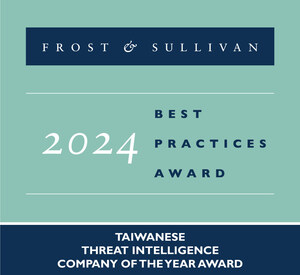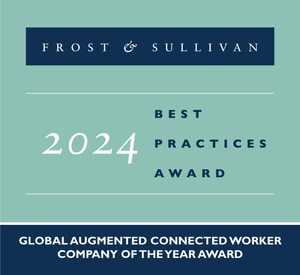10 Cities in Asia-Pacific Poised to be Smart Cities by 2025
Technology and governance will be key enablers for participants in the smart city ecosystem in Asia-Pacific, says Frost & Sullivan
KUALA LUMPUR, Malaysia, Aug. 29, 2017 /PRNewswire/ -- Asia-Pacific is a frontier of growth, development, and activity having quickly embraced disruptive trends in its journey to grow. Urbanization and demand for city services, ICT penetration, as well as the rising middle class and the need to improve quality of life has driven demand for smart cities in Asia-Pacific.
The Asia-Pacific region depicts an eclectic mix of cities. While markets such as Japan and South Korea already have fairly intelligent cities, others such as Thailand and Indonesia are slowly setting up smaller projects in governance and citizen services.
According to Hazmi Yusof, Managing Director, Malaysia and Senior Vice President at Frost & Sullivan, there are about 10 cities that are expected to become smart cities by 2025 in the Asia-Pacific region, of which, more than 50% will be in China.
"Several government agendas in this region are driving the building of smarter cities in Singapore, Japan, China, and South Korea. Investments are expected to grow from US$55.6 billion in 2013 to US$260 billion in 2020," he said. "Eight emerging cities also have standalone smart city projects, which when scaled-up, can achieve the smart city status by 2030 and beyond."
Key Parameters That Will Define a Smart City in 2025 and Beyond
Smart cities are cities built on "smart" and "intelligent" solutions and technology that focuses on managing and improving its citizen lives in a responsible and sustainable manner. The ever increasing importance of managing the pace of urbanization especially in the region has resulted in governments increasing its focus on making the "smart" journey.
In smart cities of Asia-Pacific, technology and governance will be key enablers for participants in this ecosystem. Smart cities will emerge as Big Data hubs with data from sensors and networks being collected, analyzed, and monitored in real-time by a central monitoring command center. This will be used to optimize and streamline city operations and resolve issues in real-time.
"Communication service providers and network service partners play a key role in forming the technological backbone to roll-out smart cities. Singtel in Singapore and Telstra in Australia have laid out US$500 million and US$100 million, respectively, to enable smart city technology platforms and infrastructure. Telekom Malaysia in Malaysia plans to build a data center and provide cloud computing and smart services in a technology park," said Hazmi.
He continued, "Connectivity will be a key enabler while designing an omni-channel experience platform across all touch points including online and mobile. Data from sensors will enable new technologies to integrate softer aspects, such as customer perception and citizen awareness."
Hazmi Yusof will present his insights on global smart cities and the opportunities they offer at the Invest Iskandar Malaysia 2017 Symposium to be held at Phoenix Hotel, Forest City, Johor, Malaysia on the 4th October 2017. For more information, please visit http://iskandarmalaysia.com.my.
About Frost & Sullivan
Frost & Sullivan, the Growth Partnership Company, works in collaboration with clients to leverage visionary innovation that addresses the global challenges and related growth opportunities that will make or break today's market participants. For more than 50 years, we have been developing growth strategies for the global 1000, emerging businesses, the public sector and the investment community. Is your organization prepared for the next profound wave of industry convergence, disruptive technologies, increasing competitive intensity, Mega Trends, breakthrough best practices, changing customer dynamics and emerging economies? Contact us: Start the discussion
Contact:
Carrie Low
Corporate Communications – Asia-Pacific
P: +603 6204 5910
F: +603 6201 7402
E: [email protected]





Share this article